1/ Before @jordanbpeterson became the internet's daddy and a writer of complex-yet-accessible self-help, he was a brilliant academic researcher.
Here are the key ideas from @jordanbpeterson's most cited paper: "Between Facets and Domains: 10 Aspects of the Big Five."
A Thread:
Here are the key ideas from @jordanbpeterson's most cited paper: "Between Facets and Domains: 10 Aspects of the Big Five."
A Thread:
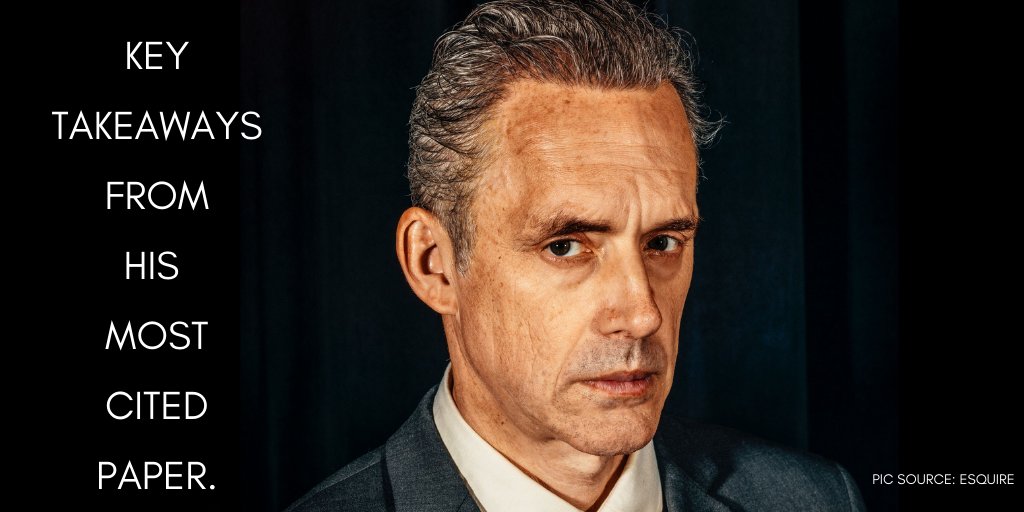
2/ Knowledge loses its value when it becomes too broad or too narrow.
This paper solves this problem for personality traits, adding a layer of Aspects between wide-ranging Domains and smaller Facets.
This paper solves this problem for personality traits, adding a layer of Aspects between wide-ranging Domains and smaller Facets.
3/ The Big Five Domains Of Personality Are:
Conscientiousness
Agreeableness
Neuroticism
Openness
Extraversion
Remember them with the acronym CANOE.
Conscientiousness
Agreeableness
Neuroticism
Openness
Extraversion
Remember them with the acronym CANOE.
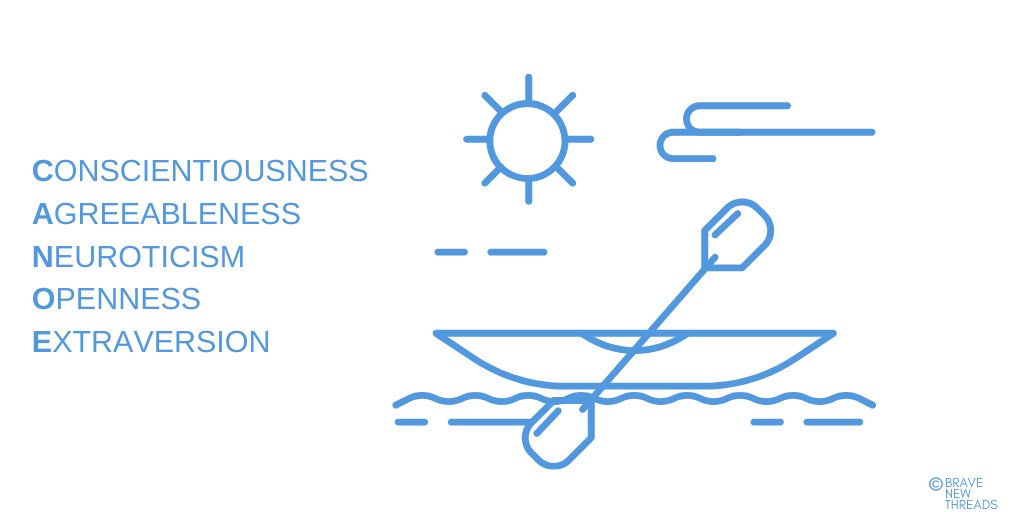
4/ Broad domains each contain six facets: co-related but distinct behaviors.
For example, Extraversion splits into: Activity, Assertiveness, Excitement-seeking, Gregariousness, Positive emotion, & Warmth.
For example, Extraversion splits into: Activity, Assertiveness, Excitement-seeking, Gregariousness, Positive emotion, & Warmth.
5/ @jordanbpeterson's paper suggests there is an "intermediate level of personality structure between facets and domains" called Aspects.
@jordanbpeterson writes: "Reasons exist to suspect that this level might be both interesting and important."
@jordanbpeterson writes: "Reasons exist to suspect that this level might be both interesting and important."
6/ Think of Aspects as two poles within Domains.
Conscientiousness: Industriousness & Orderliness
Agreeableness: Compassion & Politeness
Neuroticism: Volatility & Withdrawl
Openness: Intellect & Imagination
Extraversion: Assertiveness & Enthusiasm
Conscientiousness: Industriousness & Orderliness
Agreeableness: Compassion & Politeness
Neuroticism: Volatility & Withdrawl
Openness: Intellect & Imagination
Extraversion: Assertiveness & Enthusiasm
7/ Aspects of the same domain differ from each other in fascinating ways.
Take Conscientiousness. Industrious people prefer productivity; orderly people prefer tidiness.
Take Conscientiousness. Industrious people prefer productivity; orderly people prefer tidiness.
8/ Conscientiousness has "both proactive and inhibitive aspects."
Proactive striving for achievement v/s inhibitive instincts like caution.
Proactive striving for achievement v/s inhibitive instincts like caution.
9/ Agreeableness splits into Compassion & Politeness.
Compassion = emotional warmth
Politeness = reasoned cooperation
The former is based on feelings; the latter is "cognitively influenced."
Compassion = emotional warmth
Politeness = reasoned cooperation
The former is based on feelings; the latter is "cognitively influenced."
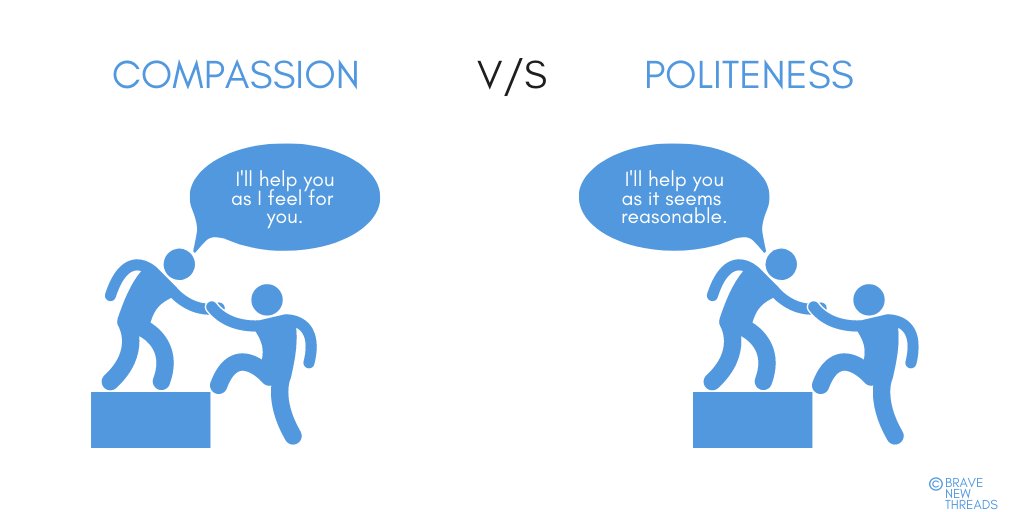
10/ Neuroticism's two aspects are differing responses to threat.
Volatility = externalizing stress.
Withdrawal = internalizing stress.
Volatility manifests as hostility and panic. Withdrawal manifests as anxiety and depression.
Volatility = externalizing stress.
Withdrawal = internalizing stress.
Volatility manifests as hostility and panic. Withdrawal manifests as anxiety and depression.
11/ Openness is an amalgam of two desires.
Intellect desires truth.
Imagination desires beauty.
Imaginative people seek "aesthetics and fantasy" while intellectual people seek "ingenuity and ideas."
Intellect desires truth.
Imagination desires beauty.
Imaginative people seek "aesthetics and fantasy" while intellectual people seek "ingenuity and ideas."
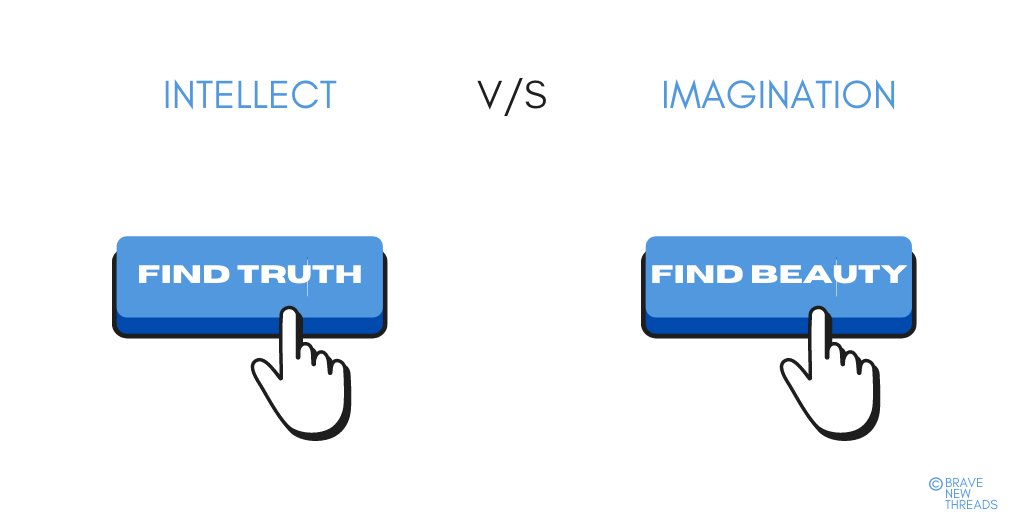
12/ Extraversion comes in two different forms:
Assertiveness: The desire to be important in social settings
Enthusiasm: The desire to be sociable
Assertive people are provocative & exhibitionistic.
Enthusiastic people are friendly and display positive emotions.
Assertiveness: The desire to be important in social settings
Enthusiasm: The desire to be sociable
Assertive people are provocative & exhibitionistic.
Enthusiastic people are friendly and display positive emotions.
13/ Aspects make the Big Five Model richer conceptually, and more useful practically!
There are lots of interesting relationships between the aspects too.
Example 1: Assertiveness is negatively correlated with Politeness but Enthusiasm is positively correlated with it.
There are lots of interesting relationships between the aspects too.
Example 1: Assertiveness is negatively correlated with Politeness but Enthusiasm is positively correlated with it.
14/ Example 2: The negative correlation between Conscientiousness and Neuroticism is among "the most robust correlations in the Big Five."
But this is misleading.
Industriousness is negatively associated with Neuroticism, but orderliness is "significantly positively correlated"
But this is misleading.
Industriousness is negatively associated with Neuroticism, but orderliness is "significantly positively correlated"
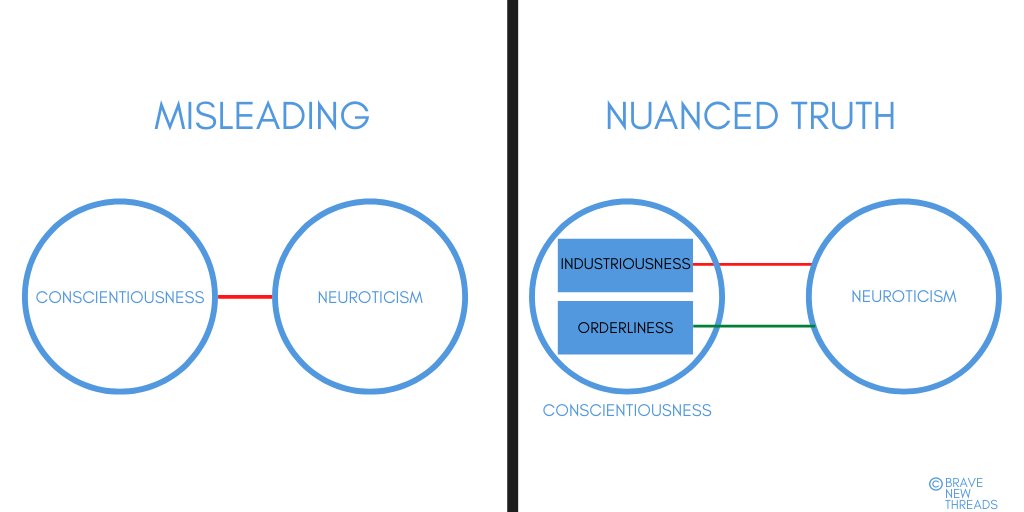
15/ Domain to domain comparison was "suppressing" the more nuanced truth that is revealed by an aspects-level analysis.
From the paper: "Given two people with equal levels of Industriousness, the one higher in Orderliness is likely to show higher levels of Neuroticism. "
From the paper: "Given two people with equal levels of Industriousness, the one higher in Orderliness is likely to show higher levels of Neuroticism. "
16/ @jordanbpeterson draws on previous research to show that aspects within a domain may have distinct genetic origins.
17/ For instance, within neuroticism, volatility may be rooted in the Fight or Flight(FF) response & withdrawal may be rooted in the Behavioral Inhibition System (BIS).
FF may manifest in behavior as panic and hostility; BIS as chronic inactivity.
FF may manifest in behavior as panic and hostility; BIS as chronic inactivity.
18/ Hope you enjoyed this breakdown!
This paper was hard but rewarding to read. Shoutout to @jordanbpeterson's co-authors: @LCQuilty and Colin G. DeYoung!
This paper was hard but rewarding to read. Shoutout to @jordanbpeterson's co-authors: @LCQuilty and Colin G. DeYoung!
19/ Publishing next week: key ideas and insights from @JonHaidt's most cited academic paper!
Follow @bravenewthreads to read it.
If you want to be notified on Whatsapp when the next thread comes out, click here: wa.me/message/P4QLGG…
Thank you for your time.
Follow @bravenewthreads to read it.
If you want to be notified on Whatsapp when the next thread comes out, click here: wa.me/message/P4QLGG…
Thank you for your time.
• • •
Missing some Tweet in this thread? You can try to
force a refresh










